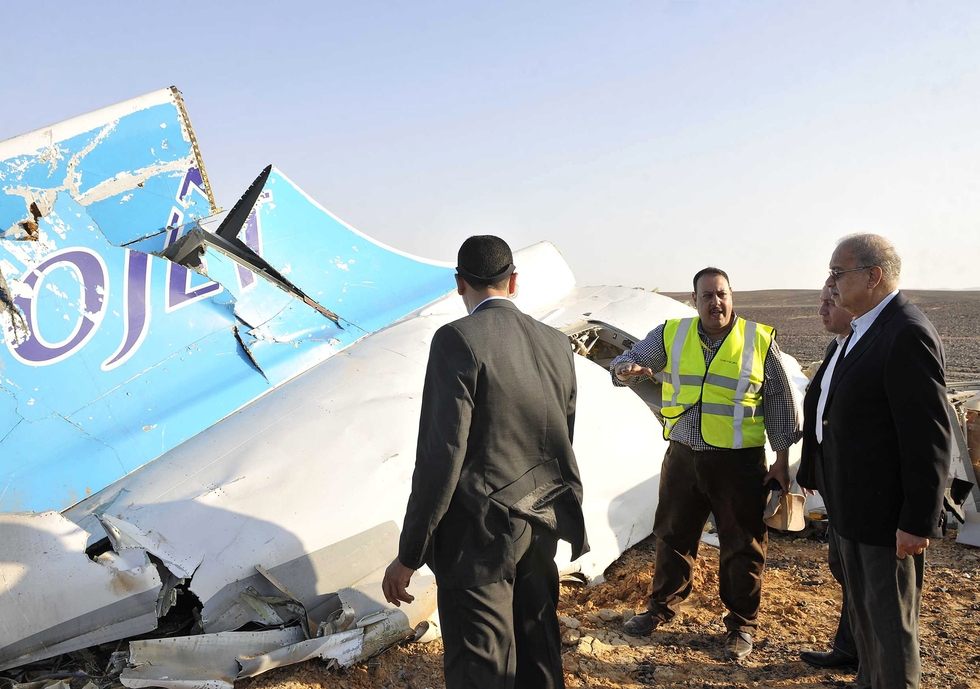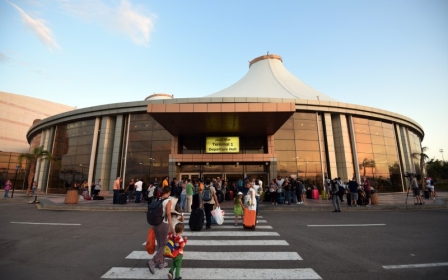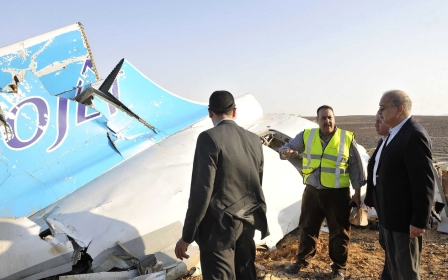Egypt hesitant about bomb aboard Russian downed plane

On Saturday, Egypt remained mute at a press conference about the cause of a downed Russia plane in the Sinai.
The Egyptian head of the technical investigation committee, Ayman el-Mokkadem, told reporters the cause of the crash was still not known.
"Initial observations... do not allow for identifying the origin of the in-flight break-up", el-Mokkadem said.
"A noise was heard in the last second" of the cockpit voice recorder data, he told a press conference.
"A spectral analysis will be carried out by specialised labs in order to identify the nature of this sound."
Several large commercial airlines have placed travel restrictions to Egypt, threatening the country’s hugely important tourism industry.
In the Red Sea resort of Sharm el-Sheikh, from where the doomed airliner took off on 31 October, thousands of Russian and British tourists waited for word of when they could fly home.
On Friday, Moscow halted every Russian flight to Egypt, while the UK has stopped British flights to Sharm el-Sheikh.
The Red Sea remains a popular destination for tourists from all over the world. According to Russia’s Federal Tourism Agency, two million Russian tourists visited Egypt in 2014.
Russia plans to send 44 planes to repatriate its nationals, the Russian Federal Air Transport Agency said.
Eleven British aircraft are on standby in Cyprus to assist the airlift, airport authorities there said.
Sources in France close to the investigation told AFP that black box data pointed to a bomb exploding, bringing a violent demise to the Airbus.
British Prime Minister David Cameron has said a bomb "had more likely than not" been the cause of the disaster.
Egyptian Foreign Minister Sameh Shoukry pleaded for patience on Saturday as the inquiry had yet to establish any firm theory.
And he added that the foreign intelligence that had triggered the international travel restrictions had not been shared with Cairo.
"We expected that any technical information should have been shared with us, at a technical level, before publicising it in the media," he said.
Egypt is heavily reliant on tourism and fears the sector would suffer from a severe adverse effect if a bomb were indeed the cause of the downed plane.
Both Russia and Britain said that stranded holidaymakers returning home from Sharm in the next couple of weeks would have their luggage flown separately.
That restriction has prompted Egypt to limit the number of daily repatriation flights because it says there is only so much baggage left behind its airports can accommodate.
"It's going to be a long wait," said Maria Chernova, a tourist stuck in Sharm.
British airlines said they expected to operate seven repatriation flights on Saturday, only enough to make a small dent in the 19,000 Britons still in Sharm.
"I have to fly out today at any cost; my son is getting married tomorrow, and I am still here," said a desperate Jane Kelly.
Bomb theory ‘strongly favoured’ by some
Kremlin spokesperson Dmitry Peskov told news agencies the decision to restrict flights did not mean Moscow believed that the crash - the worst aviation disaster in Russia's history - was due to an attack.
The head of Russia's emergencies ministry said Russian experts had taken samples from the crashed jet and were testing it for any traces of explosives.
A source in Paris close to the investigation told AFP the black box data "strongly favours" the bomb theory.
Another person close to the case said the plane suffered "a violent, sudden" end, saying: "Everything was normal during the flight, absolutely normal, and suddenly there was nothing".
The Islamic State (IS) claimed responsibility for the downed plane in retaliation for Russian air strikes in Syria, but the group has not said how it caused the plane crash.
If IS was behind the attack, it would be the first time the group has hit a passenger plane.
US President Barack Obama has said Washington is "seriously" considering the possibility of a bomb on board.
Homeland Security Secretary Jeh Johnson said security screenings of US-bound flights from some Middle East airports would be stepped up as a precaution.
Sharm el-Sheikh has been the jewel of Egypt's tourism industry, with dozens of luxury hotels and nightlife attracting tourists from around the world.
It attracted on average three to four million tourists a year before the 2011 popular uprising that ousted longtime president Hosni Mubarak.
Middle East Eye propose une couverture et une analyse indépendantes et incomparables du Moyen-Orient, de l’Afrique du Nord et d’autres régions du monde. Pour en savoir plus sur la reprise de ce contenu et les frais qui s’appliquent, veuillez remplir ce formulaire [en anglais]. Pour en savoir plus sur MEE, cliquez ici [en anglais].




